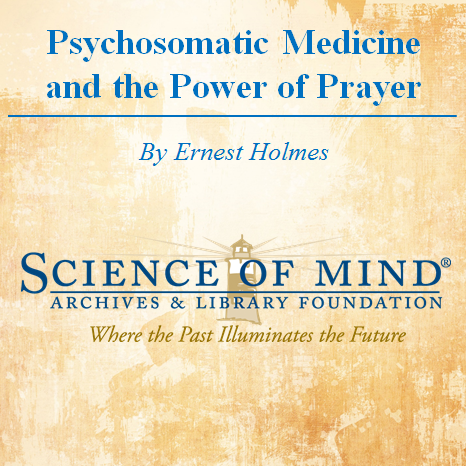Description
This relationship is called psychosomatics. And we should know its basic principles if we wish to assist the physician and the nurse, whose business it is to help us to keep well physically. The word “psychosomatics” is taken from two Greek words – “psyche” meaning mind, and “soma” meaning body. Therefore, psycho-somatic medicine means establishing a right relationship between our thinking and our bodies.
It is now accepted that many physical ailments are a direct or an indirect result of habitual thought patterns. This does not mean that one having a stomach ulcer was expecting to have it. But it might mean that a deep-seated sense of insecurity could produce such a physical condition. Disease is not an illusion, but no doubt a larger percentage of it than most of us realize is a result of our thinking. And no one can straighten out our thinking for us but ourselves. The physician can tell us how we ought to think, but he cannot think for us. This Thing Called Life is something that we have such an immediate relationship to that no outside person can interfere with it.
What we want to discover are the few fundamental emotional states that have the wrong effect on our bodies. And we shall find that they are really few in number, although their effects are multiple. They will always have a direct relationship to our reactions to Life itself – to what we are doing and to those around us.
It is interesting, isn’t it, that we cannot escape living, we cannot escape This Thing Called Life and This Thing Called Life means God, the Spirit within and around us. For instance, Carl Jung has said that faith and a belief in the reality of our own soul are the best possible mental hygiene. Another prominent psychiatrist has said that it is almost impossible to discover exactly where the emotional state leaves off and its corresponding physical condition begins; that body and mind are so inter-related that we can no longer separate them. This is the basis of psycho-somatic medicine, or body-mind relationships.
Karen Horney, one of the leaders in this field, has said that at the core of every neurosis, which accounts for a large percentage of wrong body-mind relationships that at the core of every neurosis there are generally four fundamental propositions that must be taken into account: first, a sense of rejection; second, a sense of guilt; third a sense of insecurity, and fourth, a sense of anxiety. The first is an emotional sense of not being wanted, needed and loved. The next is an unconscious sense of guilt, which is followed by a sense of insecurity, uncertainty and anxiety.

